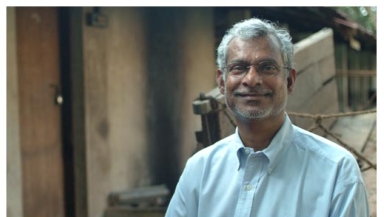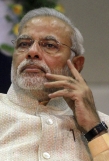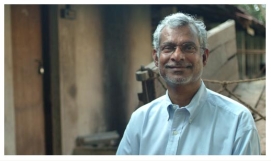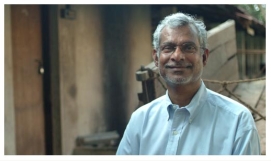
Gospel for Asia (GFA), the mission organisation founded by KP Yohannan, is regarded as one of the most signicant missionary movements of the late 20th century. Based in Texas, it has a presence in Asian countries including India, Sri Lanka, Myanmar, China and Thailand. It supports more than 50 Bible colleges, founded its own network of congregations – Believers Church – and is active in humanitarian work and education.
Now, however, it is fighting accusations of a lack of financial transparency and that it practises an authoritarian form of church discipline that has left a trail of damage behind it.
Questions about its financial affairs have been raised by blogger Warren Throckmorton, who has studied publicly available documents detailing GFA's bank holdings in India. He revealed that GFA was using students and staff to transfer undeclared cash to India, a practice known as "smurfing" which the organisation has now ended. He also posted documents showing large amounts of cash held in GFA and Believers Church bank accounts and queried apparent discrepancies between the amounts sent from the US to India and amounts declared as having been received.
GFA's Chief Operating Officer David Carroll told Christian Today that it was important to understand that GFA India and Believers Church were separate entities from Gospel for Asia USA. While he did not provide detailed figures, when asked about the cash reserves apparently held in Indian accounts, he said: "Like any nonprofit organisation or ministry, money in these bank accounts ebbs and flows throughout the year. It does not just sit there. The account balance will swell and then decline as the money is spent according to donor designations."
He also said that money could not be spent until it could be used for the specific project for which it was donated: "Though Gospel for Asia India and Believers Church is responsible for dispersing the funds, they know the requests of the donors for the specific designations the money was given for and they are fastidious about documenting the disbursement of donor funds. The donations go where they have been designated."
GFA is a member of the Evangelical Council for Financial Accountability (ECFA), which made an on-site review of its finances at its headquarters in Willis Point, Texas last week. ECFA told Christian Today: "We found the organisation to be highly transparent and fully cooperative, as I'm sure they'll continue to be as ECFA continues our review of Gospel for Asia."
It confirmed that GFA had sent cash with individuals travelling to India, but said that it had "stopped this practice entirely, and is working with legal counsel to determine appropriate remedial measures, if any". Regarding apparent financial discrepancies, it said: "There are certain foreign NGOs that include 'Gospel for Asia' in their name. The data of those NGOs is not consolidated with that of Gospel for Asia (US) for financial statements purposes."
It concluded: "Gospel for Asia is in full compliance with ECFA in requiring our members to provide a copy of its current financial statements upon written request and other disclosures as the law may require. The organisation has gone beyond what the law requires by submitting to ECFA's accreditation process."
However, Throckmorton said: "Declining to answer questions from the public about their financial dealings is not transparent. GFA specifically told me that they would not answer any more questions regarding matters that have now proven to be legitimate. Private meetings between the ECFA and GFA are of little benefit to donors."
He also questioned the response of ECFA to the apparent discrepancies between US and Indian accounts, saying: "This is a non-answer to the issue of why the amount of funds GFA claims is going to India does not show up in records reported to the Indian government. If GFA and ECFA want the trust of the public, these organizations should actually address the issues regarding the evasion of federal reporting requirements, discrepancies between what they say they send to Asia and what shows up there, and other apparent irregularites in their audited statements"
While unresolved questions about GFA's financial arrangements – and the EFCA says it "continues our review" – have the potential to be very damaging to the organisation, so do accusations made against it by a group mainly of former staff members.
A year ago more than 80 people describing themselves as the 'GFA Diaspora' wrote to GFA's leadership raising questions about some of its practices. Their letter listed five areas of concern, saying that GFA's leadership practised a false view of spiritual authority, prioritised ministry over family, deceived people to protect the ministry, practised unbiblical 'shunning' – cutting off all contact with people under discipline – and discouraged staff involvement in Bible studies and local churches.
Among its charges are that its founder KP Yohannnan was untruthful when he denied that pastors were required to kiss his episcopal ring, later shown in a YouTube video.
The concerns are backed up with testimonies from staff who were personally affected by the practices alleged to have occurred. The letter describes the practices as "spiritual abuse" and says that many have been "spiritually shipwrecked" by their experiences.
It says that GFA's leadership had been warned about the effect of its policies and that many unsuccessful attempts had been made to raise concerns with them. It asks for an apology, increased transparency in how its affairs are conducted and changes in the way staff are treated.
The GFA Diaspora website was initially password-protected but was opened to public view on June 1. It contains a "Communications History" section detailing the exchanges between the Diaspora and the GFA leadership. GFA first responded by saying that "all these accusations or details were either fabricated behind the scenes by someone, or there has been a serious misunderstanding". It also accuses the lead author, JD Smith, of choosing to "slander and defame" the organisation and says that he has committed libel. A subsequent letter provides a point-by-point rebuttal of the five charges made by GFA Diaspora.
As the Diaspora was dissatisfied by the response, a GFA investigation into the situation was launched. Its report, signed "Gayle", said that "after many hours of investigation, intense prayer and examination of heart, we are broken-hearted and repentant that we damaged by our actions and attitudes any believer for whom we had responsibility by relationship. We have proposed, and still do, to go wherever we need to and do all within our power to apologize and seek forgiveness and healing with anyone and everyone on your list who may have suffered damage of spirit or heart from us."
However, it denied charges that the organisation had functioned as a "cult" and said that the accusations were "without foundation in terms of the fulfilling of our call to enlarge the Kingdom of God".
It said that "your demand that we gather the boards of the USA and Canada to meet with you in order to escape your threats is excessive, impractical and counter to the commitment of our time to getting the Gospel to those who have not heard".
Asked about the charges levelled against it by GFA Diaspora, Carroll told Christian Today: "Our leadership team values the well-being of our staff members and does not take criticism lightly. Upon being made aware of the former staff members' complaints, we were heartbroken and immediately asked God to show us where we had been in error.
"For many months, we tried to sufficiently answer the different communications that came from these former staff members, but we realise that some remain unsatisfied with our responses."
He said that GFA had "actively sought to reach out individually to the members of this group to ask forgiveness", adding that the leadership team acknowledged that there had been "times when we have not communicated with enough grace nor with enough clarity when speaking to members of staff". He said that they regretted "the times that we have been insensitive to members of our staff and failed to fully understand their feelings and needs".
Carroll concluded: "As a leadership and as an organisation, we are grateful these concerns have been expressed. We have learned so much, and we look to do better in every way as we are going forward.
"Our motivation has always been and continues to be to reach as many people as possible in Asia with God's love and to grow in our ability to reflect the character of Christ in our own organisation."
However, Carroll's response failed to satify the GFA Diaspora. In a response to Christian Today, the Diaspora said that while GFA had responded to individuals about particular issues, "really our concern was not with individual sins here and there but rather a systemic pattern of these things that abuse and harm many of the staff and students". It continued: "Their response wasn't acceptable to us because they failed to address specific wrongdoing on any of the five concerns we raised, and they refused to even discuss it with us. All the while they tell others that they were actually open to discussion and that we were the ones who refused."
The Diaspora also repeated charges about the ring-kissing ritual, denied by GFA but clearly visible in a video: "If your denomination kisses rings, we are not going to oppose you, but don't say it doesn't when it does."
The two fronts on which Gospel for Asia is fighting appear very different. In the first case, however – allegations of a lack of financial transparency – there is no reason why a clearer picture should not emerge in due course. However, the pressure from GFA Diaspora is likely to continue and it is hard to see a resolution any time soon.
Follow @RevMarkWoods on Twitter.

















